Coastal Research Breakthrough: Lida Group’s Corrosion-Resistant Prefab Sandwich Panel Construction Protects Mobile Field Labs
2025-Aug-08 10:51:43
By Admin
1. Introduction
Coastal research plays a pivotal role in understanding the complex interactions between land, sea, and atmosphere. Mobile field labs are essential tools for scientists in this field, as they allow for on – site data collection and analysis in often remote and harsh coastal environments. However, the corrosive nature of coastal areas, with high humidity, salt – laden air, and exposure to seawater, poses significant challenges to the infrastructure housing these mobile labs.
Lida Group, a renowned name in the prefabricated building industry, has introduced a game – changing solution: corrosion – resistant prefab sandwich panel construction. This innovative construction method not only addresses the unique challenges of coastal environments but also offers a host of advantages in terms of durability, cost – effectiveness, and flexibility for mobile field lab installations.

2. The Challenges of Coastal Environments for Mobile Field Labs
2.1. Corrosion Risks
Coastal areas are characterized by a high concentration of salt in the air and water. Salt is a highly corrosive substance that can rapidly degrade traditional building materials. Metals, such as steel, are particularly vulnerable. When exposed to salt – laden air, steel undergoes a process of oxidation, commonly known as rusting. Rust not only weakens the structural integrity of the building but also reduces its lifespan significantly.
For mobile field labs, which are often equipped with sensitive scientific instruments, the presence of rust can lead to electrical malfunctions, damage to equipment, and inaccurate data collection. In addition, the constant need for maintenance and replacement of corroded components can be costly and time – consuming, disrupting research operations.
2.2. Humidity and Moisture
High humidity levels are another characteristic of coastal regions. Moisture in the air can penetrate building materials, leading to mold and mildew growth. This is not only a health hazard for researchers working in the mobile field labs but can also damage the interior finishes, insulation, and even the scientific equipment.
Moisture can also cause swelling and warping of wooden components, if any are present in the building structure. For example, wooden doors and window frames may become difficult to open and close, and wooden flooring may buckle. In extreme cases, the structural integrity of the building can be compromised due to the effects of moisture – related decay.
2.3. Severe Weather Conditions
Coastal areas are prone to severe weather events such as hurricanes, typhoons, and heavy storms. These weather conditions bring strong winds, driving rain, and sometimes storm surges. Mobile field labs need to be able to withstand these forces to ensure the safety of the researchers and the integrity of the scientific equipment.
Traditional building materials may not be able to endure the high – velocity winds and the impact of flying debris during storms. In addition, the force of a storm surge can cause significant damage to buildings located in low – lying coastal areas. This requires mobile field lab infrastructure to be both robust and designed to resist the unique forces associated with coastal weather.
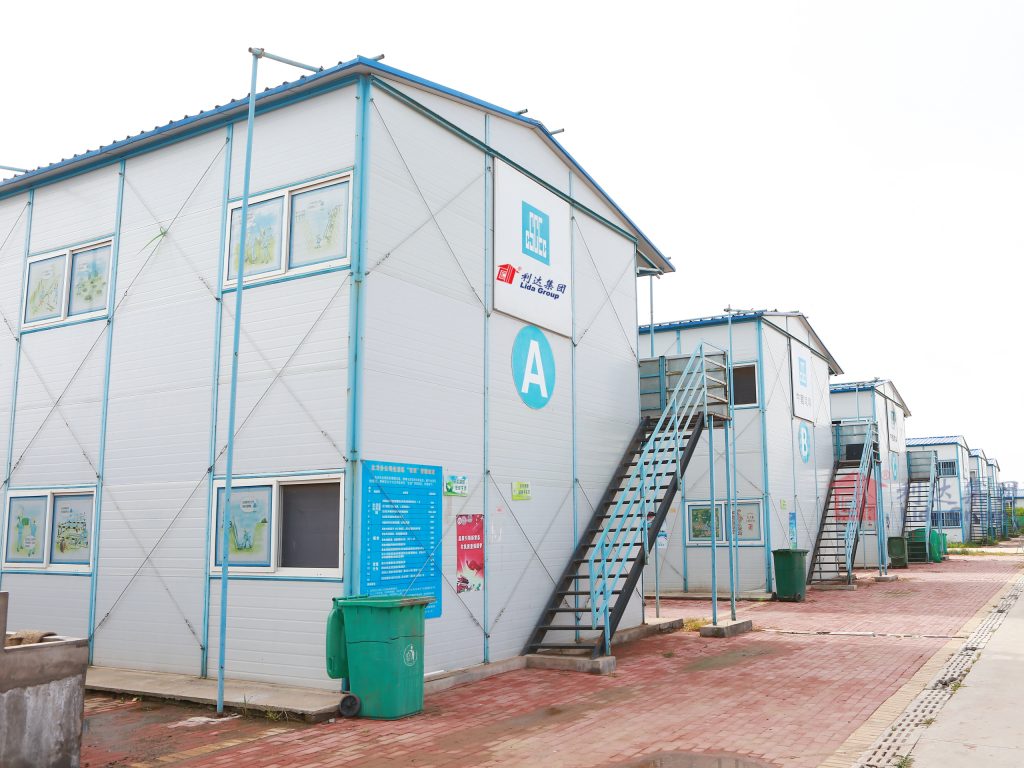
3. Lida Group: A Leader in Prefabricated Building Solutions
3.1. Company Background and Expertise
Lida Group has a long – standing reputation in the prefabricated building industry, with a history dating back to [founding year]. Over the years, the company has grown to become a global player, with a workforce of [number of employees] and a state – of – the – art manufacturing facility spanning [size of facility] square meters.
The company’s team of [number of engineers] engineers is highly skilled in designing and developing prefabricated building solutions that meet the diverse needs of different industries. Their expertise ranges from understanding the structural requirements of buildings in various environments to incorporating the latest technological advancements in construction materials.
3.2. Product Portfolio and Quality Standards
Lida Group offers a comprehensive product portfolio, including a wide range of prefabricated buildings such as labor camps, steel – structure buildings, container houses, and prefab houses. Their products are known for their high quality, which is ensured through strict compliance with international standards.
The company holds multiple certifications, including ISO 9001 for quality management, ISO 14001 for environmental management, and ISO 45001 for occupational health and safety management. In addition, their products have obtained EU CE certification (EN 1090), which attests to their compliance with European safety, health, and environmental protection regulations. This commitment to quality has made Lida Group a trusted partner for projects around the world.
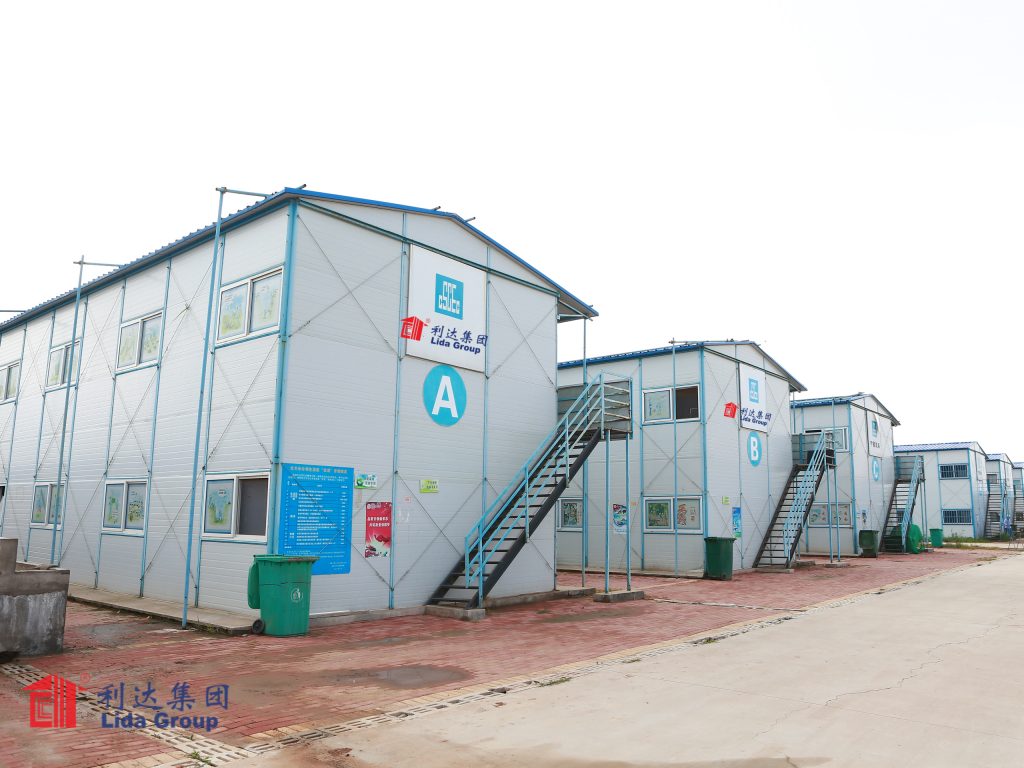
4. Lida Group’s Corrosion – Resistant Prefab Sandwich Panel Construction
4.1. Sandwich Panel Design and Materials
Lida Group’s prefab sandwich panels are designed with a unique structure that combines the advantages of different materials. The panels consist of two outer layers, typically made of high – quality steel or aluminum, and a core layer. The core layer is usually composed of materials such as polyurethane foam, rock wool, or polystyrene, depending on the specific requirements of the application.
The outer steel or aluminum layers are coated with special corrosion – resistant coatings. These coatings are formulated to provide a barrier against the corrosive elements present in coastal environments. For example, some coatings contain zinc – rich compounds that sacrificially protect the underlying metal by corroding in place of the base metal. This significantly extends the lifespan of the panel in salt – laden and humid conditions.
4.2. Corrosion – Resistance Mechanisms
The corrosion – resistance of Lida Group’s sandwich panels is achieved through a combination of factors. The protective coating on the outer layers acts as the first line of defense. It prevents direct contact between the metal substrate and the corrosive agents in the environment, such as salt and moisture.
In addition, the choice of materials for the outer layers is crucial. Aluminum, for instance, forms a natural oxide layer on its surface when exposed to air. This oxide layer is very thin but highly resistant to further corrosion, providing an additional level of protection. Steel used in the panels is also carefully selected and treated to enhance its corrosion – resistance properties.
The core layer of the sandwich panel also plays a role in corrosion resistance. Materials like rock wool are non – combustible and do not support the growth of mold or mildew, even in high – humidity environments. This helps to maintain a dry and corrosion – free interior environment within the mobile field lab.
4.3. Structural Integrity and Durability
The sandwich panel construction offers excellent structural integrity. The combination of the outer layers and the core layer creates a composite structure that is strong and rigid. The panels can withstand significant loads, making them suitable for use in buildings that need to resist the forces of severe weather, such as those in coastal areas.
The durability of the panels is further enhanced by their resistance to corrosion. By preventing rust and other forms of corrosion, the structural components of the building remain strong over time. This means that mobile field labs constructed using Lida Group’s sandwich panels can be expected to have a long service life, reducing the need for frequent repairs and replacements.
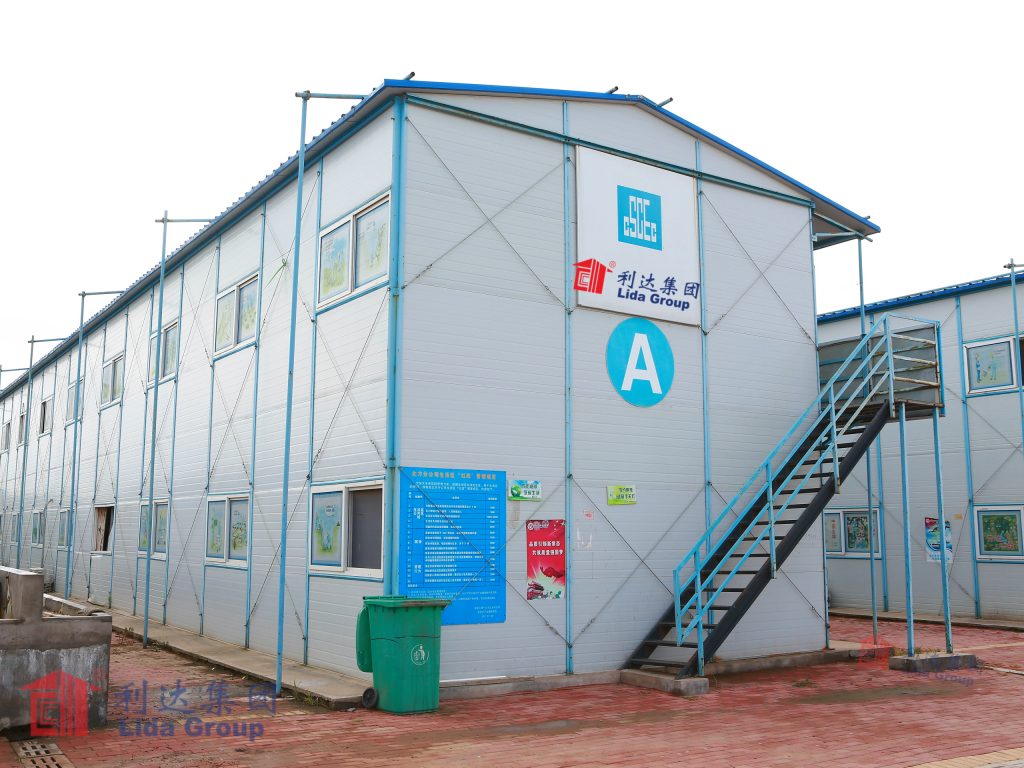
5. Applications in Mobile Field Labs
5.1. Protection of Sensitive Scientific Equipment
Mobile field labs are often equipped with a variety of sensitive scientific instruments, such as spectrometers, microscopes, and data loggers. These instruments require a stable and corrosion – free environment to operate accurately. Lida Group’s corrosion – resistant prefab sandwich panel construction provides an ideal housing for such equipment.
The panels’ ability to keep out moisture and prevent the growth of mold ensures that the internal environment of the mobile field lab remains clean and dry. This is crucial for the proper functioning of electronic components in the scientific equipment. In addition, the corrosion – resistance of the panels protects the building’s electrical wiring and fixtures, reducing the risk of electrical malfunctions that could damage the equipment.
5.2. Adaptability to Different Research Needs
Coastal research encompasses a wide range of disciplines, from marine biology and oceanography to coastal geology and climate change studies. Mobile field labs need to be adaptable to the specific research needs of each discipline. Lida Group’s prefab sandwich panel construction allows for easy customization.
The panels can be assembled in different configurations to create spaces of various sizes and layouts. This flexibility enables researchers to design mobile field labs that are tailored to their specific requirements. For example, a marine biology research lab may require a large wet – lab area with access to seawater, while a climate change research lab may need a dedicated space for storing and analyzing data.
5.3. Mobility and Ease of Installation
As the name implies, mobile field labs need to be easily movable to different locations along the coast. Lida Group’s prefabricated sandwich panel buildings are designed with mobility in mind. The panels are lightweight, yet strong, making them easy to transport.
Installation of the buildings is also quick and straightforward. The panels are pre – fabricated off – site and can be assembled on – site in a relatively short period. This reduces the time and cost associated with setting up a mobile field lab in a new location. In addition, the modular nature of the construction allows for easy disassembly and reassembly, enabling the lab to be relocated as research needs change.
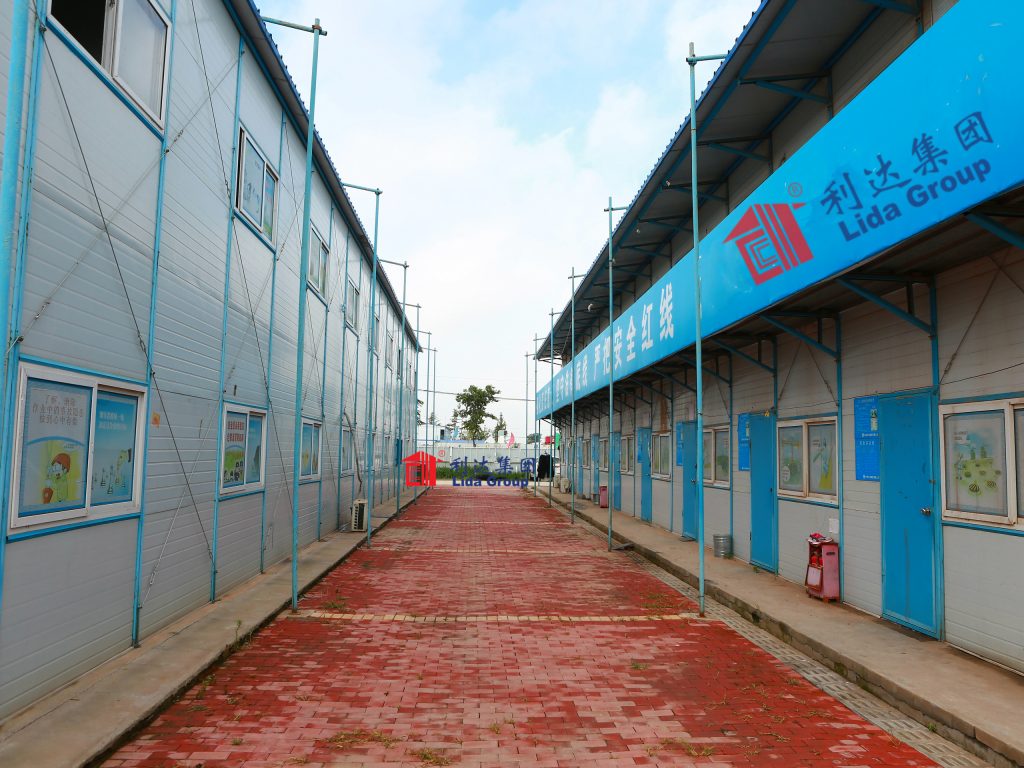
6. Real – World Case Studies
6.1. Case Study 1: Marine Biology Research in a Tropical Coastal Area
A team of marine biologists was conducting research on coral reef ecosystems in a tropical coastal area known for its high humidity and salt – laden air. They used a mobile field lab constructed with Lida Group’s corrosion – resistant prefab sandwich panels.
Over the course of a year – long research project, the lab remained in excellent condition. The corrosion – resistant coatings on the panels showed no signs of degradation, and there was no evidence of rust or mold growth inside the lab. The researchers were able to focus on their work without having to worry about the integrity of the building or the performance of their scientific equipment. The mobility of the lab also allowed them to move to different locations along the coast to study various coral reef sites.
6.2. Case Study 2: Coastal Geology Research in a Storm – Prone Region
In a storm – prone coastal region, a group of geologists was studying the effects of erosion and sedimentation on the coastline. They set up a mobile field lab using Lida Group’s prefab sandwich panel construction.
During the peak of the storm season, the lab withstood strong winds and heavy rain without any damage. The structural integrity of the building remained intact, and the sensitive geological monitoring equipment inside the lab continued to function properly. The corrosion – resistant panels protected the lab from the corrosive effects of the salt – spray carried by the storm winds, ensuring that the research operations could continue uninterrupted.
6.3. Case Study 3: Climate Change Research in a Remote Arctic Coastal Area
Climate change researchers working in a remote Arctic coastal area faced the challenge of extreme cold, high winds, and the corrosive effects of sea ice and salt – water spray. They chose a mobile field lab made with Lida Group’s sandwich panels.
The panels’ excellent insulation properties, provided by the core layer, helped to keep the interior of the lab warm in the frigid Arctic climate. The corrosion – resistant outer layers protected the building from the harsh Arctic environment, where the combination of cold, moisture, and salt can be particularly damaging to traditional building materials. The lab’s mobility allowed the researchers to access different study sites in the vast Arctic landscape, contributing to their understanding of the impacts of climate change in the region.
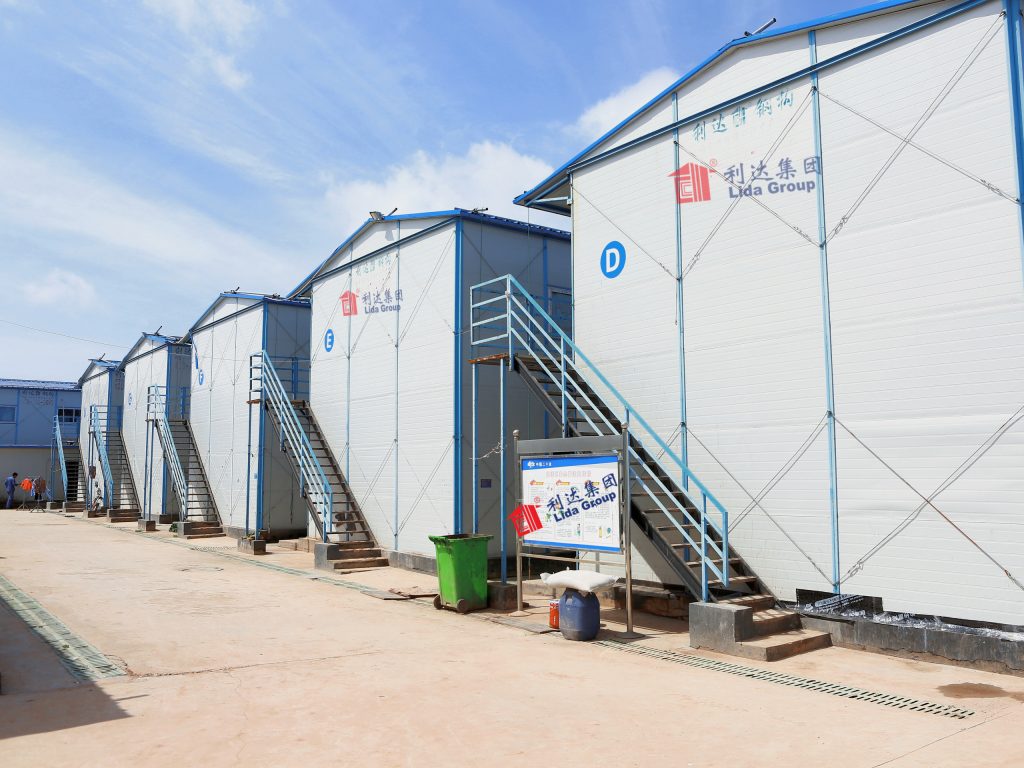
7. Challenges and Solutions in Implementing the Technology
7.1. Initial Cost Considerations
One of the challenges in implementing Lida Group’s corrosion – resistant prefab sandwich panel construction for mobile field labs is the initial cost. The use of high – quality materials and advanced corrosion – resistant coatings can make these buildings more expensive upfront compared to traditional prefabricated structures.
However, Lida Group offers cost – effective solutions in the long run. The durability and low maintenance requirements of their sandwich panel buildings mean that over the lifespan of the mobile field lab, the total cost of ownership is often lower. In addition, the company works with clients to provide detailed cost – benefit analyses, demonstrating how the long – term savings in terms of reduced maintenance, fewer equipment failures due to a stable environment, and extended building lifespan can offset the higher initial investment.
7.2. Technical Installation and Maintenance Training
Proper installation and maintenance of the corrosion – resistant sandwich panel buildings are crucial for their optimal performance. While the installation process is designed to be straightforward, some clients may require training on how to assemble and disassemble the panels correctly.
Lida Group addresses this challenge by providing comprehensive technical training to its clients. The training covers all aspects of installation, from preparing the foundation to connecting the panels and installing the finishing touches. In addition, the company offers maintenance training, including how to inspect the corrosion – resistant coatings, check for signs of moisture intrusion, and perform basic repairs. This ensures that clients are equipped with the knowledge and skills to keep their mobile field labs in good condition.
7.3. Customization to Specific Research Requirements
As mentioned earlier, mobile field labs need to be customized to meet the specific research requirements of different disciplines. While Lida Group’s sandwich panel construction allows for a high degree of customization, there may be some complex or unique requirements that pose challenges.
The company’s team of engineers works closely with clients to understand their specific needs and develop customized solutions. They use advanced design software to create detailed plans for the mobile field labs, ensuring that every aspect of the building, from the layout of the interior spaces to the integration of specialized equipment, is tailored to the client’s research objectives. This collaborative approach helps to overcome the challenges of customization and deliver a mobile field lab that meets the exact needs of the researchers.
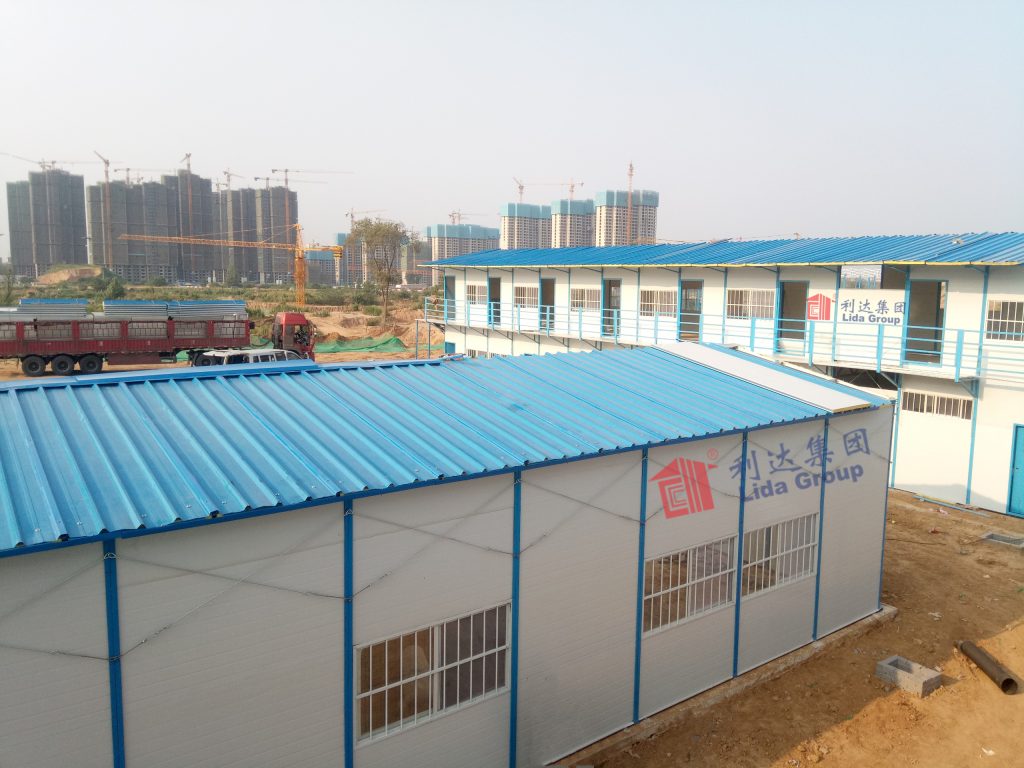
8. Future Outlook for Lida Group’s Technology in Coastal Research
8.1. Technological Advancements
As technology continues to evolve, Lida Group is likely to introduce even more advanced features in its corrosion – resistant prefab sandwich panel construction. For example, the company may develop self – healing corrosion – resistant coatings. These coatings would be able to automatically repair minor scratches or damage, further enhancing the panels’ ability to withstand the harsh coastal environment.
In addition, the use of smart materials in the core layer of the sandwich panels may be explored. Smart materials can change their properties in response to external stimuli, such as temperature or humidity. This could lead to the development of mobile field labs that can automatically adjust their interior environment to optimize the performance of scientific equipment and the comfort of researchers.
8.2. Market Expansion
With the increasing importance of coastal research and the growing recognition of the challenges posed by coastal environments, the demand for Lida Group’s corrosion – resistant prefab sandwich panel construction for mobile field labs is expected to rise. The company is likely to expand its market reach, not only in existing regions but also in new areas where coastal research is emerging.
Lida Group may also target other industries that operate in corrosive environments, such as the oil and gas industry, which has facilities located in coastal and offshore areas. By diversifying its customer base, the company can further grow its business and contribute to the development of infrastructure that can withstand the harshest of environmental conditions.
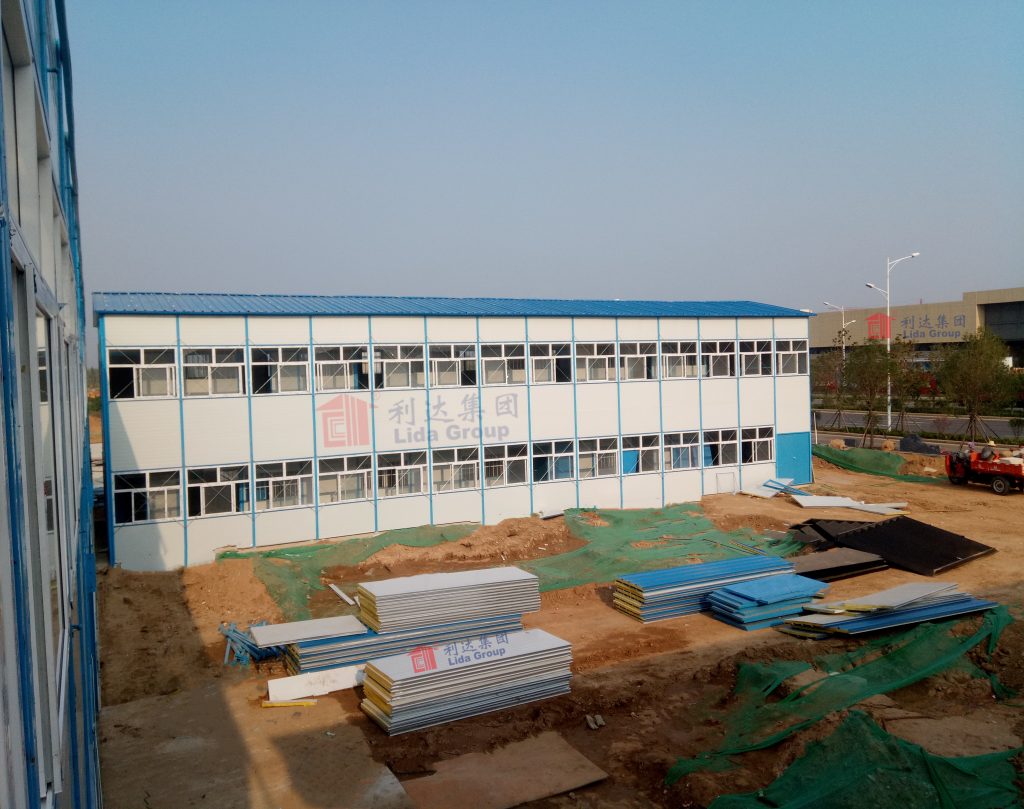
9. Conclusion
Lida Group’s corrosion – resistant prefab sandwich panel construction represents a significant breakthrough in the field of coastal research infrastructure. By addressing the challenges of corrosion, humidity, and severe weather conditions in coastal areas, the company has provided a durable, flexible, and cost – effective solution for housing mobile field labs.
The real – world case studies demonstrate the effectiveness of this technology in protecting sensitive scientific equipment, adapting to different research needs, and withstanding the rigors of various coastal environments. Although there are challenges in implementing the technology, Lida Group has developed solutions to overcome them, such as providing cost – benefit analyses, technical training, and customized design services.
Looking to the future, with continued technological advancements and market expansion, Lida Group is well – positioned to play an even more significant role in supporting coastal research. Their efforts not only benefit the scientific community but also contribute to a better understanding of the coastal environment and the development of sustainable solutions for coastal – related industries.
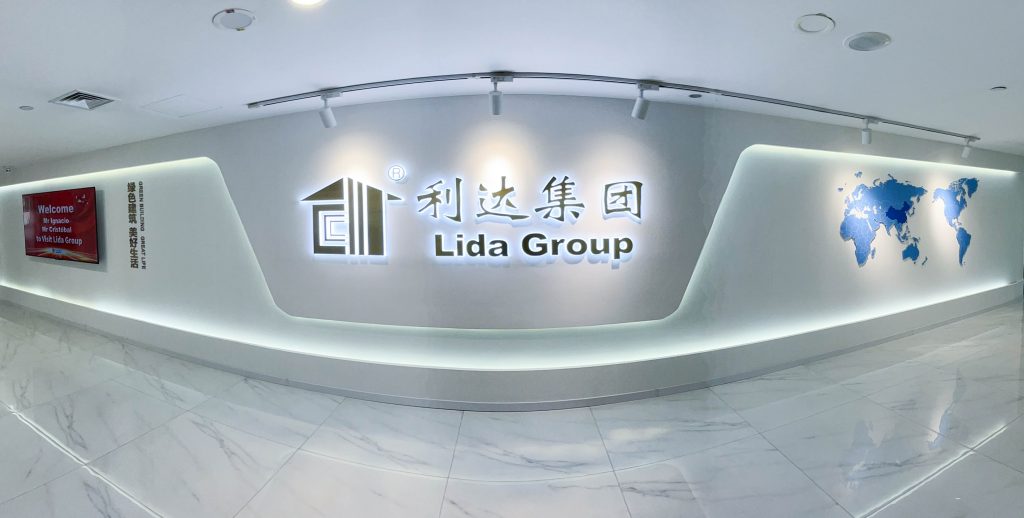
Related news
-
Hurricane-Proof Shelters: Lida Group's Prefab Sandwich Panel Construction Enables Rapid Deployment of Secure Mobile Units
2025-08-06 14:18:18
-
Smart Event Infrastructure: IoT-Enabled Temporary Prefab Buildings by Lida Group Feature High Quality Mobile House Technology
2025-08-07 17:08:56
-
Sustainable Mining Camps: Lida Group Delivers High Quality Mobile Houses Using Recycled Sandwich Panel Temporary Structures
2025-08-06 15:57:43
contact us
- Tel: +86-532-88966982
- Whatsapp: +86-13793209022
- E-mail: sales@lidajituan.com


